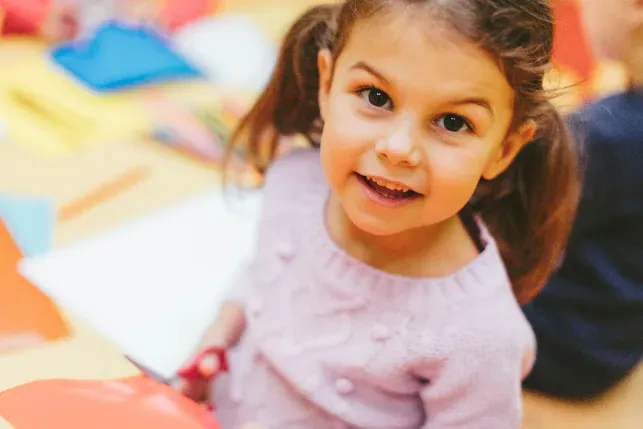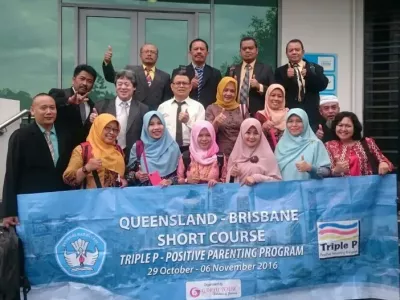Worried About School? Success Starts At Home.

It’s natural to have concerns when your child is starting school. And many parents feel they must provide the best education money can buy. But regardless of where your kids spend their school years, there is a lot you can do to prepare your children to succeed in life.
The fundamental things that influence children's capacity to get on with their lives have to do with creating stable, predictable, loving, low-conflict environments, where parents have got the knowledge, skills and aspiration to share this with their kids, so the kids get what they need, to do well.
We have so many parents placing so much importance on a children’s school and further education, but here’s the thing, and it’s hugely empowering: the right parenting skills enable kids to be much more successful in life, because they have the social/emotional capabilities they need.
It’s about giving parents the tools, not just to stop the arguing back or temper tantrums, but to apply these principles to the longer-term goals they have for creating well-adjusted people. And helping all parents, even those in really challenging situations, to be able to overcome difficulties to achieve those goals.
Teamwork between schools and parents can be as easy as ABC. Right now, we have quite a lot of teachers, child care workers and guidance counsellors who help kindergartens, schools and parents get together to work through common behavioural issues.
For example, guidance counsellor Laura Bennett works in North Carolina (USA). She says typically, parents and teachers are struggling to deal with children who have difficulties with sharing, getting along with others, accepting consequences, and following directions and rules. “Many parents say that what (the teacher) is seeing at school is what they’re dealing with at home as well. I want to make sure everybody’s on board and that the strategies being implemented at school are also being implemented at home.”
Pollyann Webb, who works with Goodstart Early Learning Centres in Queensland, agrees: “There’s a greater awareness now of the need to keep open communication with the family. It’s not only about their child and development but also about what’s out there in the community and how there are other programs out there to support family structures.”
Using the structured-yet-flexible Triple P program, Laura Bennett gives parents the level of support they need. “All of these seminars give really good tips on how to develop social and emotional strengths in children, for both school and home success,” she says.
“We make sure we’re all using the same language, so that at school we’re mirroring what is done at home and vice versa,“ she adds. “Since we’ve been using the Triple P model, and since the parents, teacher, and myself have been all working together, we’ve seen children who are making growth socially that leads to growth academically.”
This isn’t just good news for individual parents. It’s good for the whole community. If we're thinking about a societal goal of creating healthy, happy, well-adjusted kids who have good relationships with their peers, siblings and extended family, and are major contributors to their neighbourhoods and communities in a positive way, that's what a parenting program like Triple P can help them accomplish.

